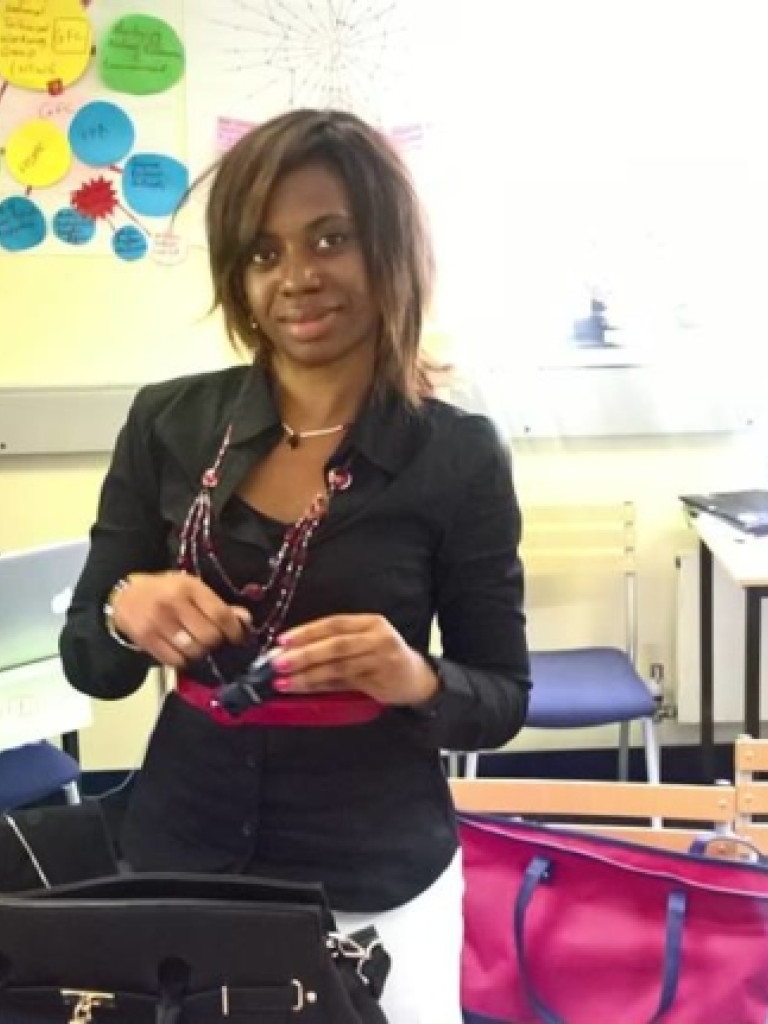
AFY MALUNGU BOBYONDO
- 2017
- Press Fellow
Science journalist since 2015, Afy is currently a freelance editor with www.infocongo.org, a news platform focusing on the impacts of climate change. She has a passion for training and mentoring journalists who want to report on the environment in Central Africa. Having a great interest in women's rights she has led a campaign on social networks for women's participation in the decision-making process in her country, the Democratic Republic of Congo (#droitsegauxpourtous). In 2016, she was a fellow at the Adaptation Future Conference and the African Investigative Journalists Conference. Her articles have been published in different online media in Central Africa such as Gabonreview.net. 1. Why did you choose to become a science journalist? I did not choose to become a science journalist. I did not have that much interest in science, but rather in literature. My strong interest in the environment, my wish to understand things in their complexity and my passion to inform in order to contribute to the development of my community have pushed me to integrate science in my profession in order to fulfill my vision of the world. 2. What role do science and science communication play in your country? Discussing the role of science and science communication in a developing country such as mine is a challenge and may seem to be a minor issue given the political, economic and social context. Actually, science and science communication in my country are used to enable policy-makers to decide objectively and in the interest of the entire Congolese community. Thus, the availability of scientific data dictates the development of science communication, as it is the case in the environment sector where several studies are conducted because of the role of DRC forests in capturing the world’s carbon stock. On the other hand, we can notice that there is not yet a strong dynamic to make science and science communication at the level of comprehension for the general public. 3. What are the main challenges of science journalism in your country? Politics and sports are the most communicated issues, and the high rate of illiteracy makes it difficult to integrate science into media coverage. Besides, scientific research is obsolete in the majority of fields. The lack of professional journalism in the DRC is one of the great challenges we face and science is the least attractive field for journalists. In addition, the majority of Congolese journalists, especially in private media, don't get a regular salary from their employer. This situation leads them to turn naturally towards the best paying areas such as politics, sports and leisure. Science and science communication is really missing in all areas of life in my country. Both can help to solve development issues and encourage people to solve problems themselves. 4. Where do you see the big societal transformations in the future? What scientific research/discovery will change our world? New discoveries in the production of sustainable food adapted to each developing country such as sustainable agriculture that will save the biodiversity of the planet in forest regions and, even more, save millions of people from hunger, while making them independent and resilient. Solving the problem of hunger in the world, and in my country, will allow the development of creativity because the majority of the population spends 80% of their activities on food production. 5. What book, movie or song has radically changed your perspective? And why? I like reading books full of intrigues that encourage me to see beyond the most obvious explanation. Such as the Millennium trilogy by Stieg Larsson, The Pillars of the Earth by Ken Follett and especially all the books of Guillaume Musso and Patricia McDonald. I have been a fan of Star Wars and Star Trek since I was 6 years old. Those films have sparked my interest in science and discovery. Which prompted me to watch National Geographic, Discovery Channel and Planète. This led me to understand the importance of science in journalism. I am also interested in historical films and books, because they have given me an interest in development issues, which has led me to understand some leadership notions.